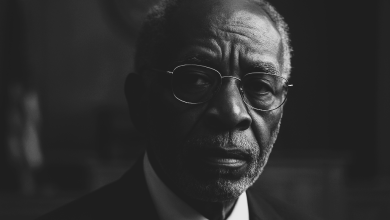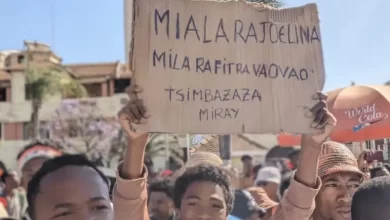
For decades, Africa has battled the perception that justice for war crimes and crimes against humanity must come from outside the continent. But in a groundbreaking legal victory, Africa showed the world that it could hold its own leaders accountable. The trial of Hissène Habré, the former dictator of Chad, was more than just a court case—it was a defining moment for justice, human rights, and the rule of law in Africa.
The Rise and Reign of a Tyrant
Hissène Habré ruled Chad with an iron fist from 1982 to 1990. His government, backed by Western powers like the United States and France, was initially seen as a stabilizing force in the region. But behind closed doors, his regime carried out mass killings, torture, and systematic rape against political opponents and ethnic groups seen as threats.
The numbers are staggering: an estimated 40,000 people were murdered, and thousands more were imprisoned, tortured, or raped. A secret police force, the Documentation and Security Directorate (DDS), was the backbone of his reign of terror, creating a state of fear where speaking against the government often meant death.
The Long Road to Justice
When Habré was overthrown in 1990 by Idriss Déby, he fled to Senegal, where he lived freely for years. Survivors and human rights groups launched a relentless pursuit of justice, determined to bring him to trial. But for more than 20 years, political delays and legal hurdles blocked any attempt to prosecute him.
A breakthrough came in 2012 when the Extraordinary African Chambers (EAC) was created in Senegal, a special court established by the African Union (AU) to try Habré for crimes against humanity, war crimes, and torture. It was a historic moment—the first time an African country would prosecute another African leader under universal jurisdiction.
The Trial That Changed Africa
In 2015, the trial of Hissène Habré finally began in Dakar, Senegal. Survivors who had waited decades for justice stood before the court to testify about the horrors they endured. Women spoke of systematic rape used as a weapon of oppression. Former prisoners recounted the brutality of the DDS, where torture methods included electric shocks, waterboarding, and beatings to death.
Habré, defiant until the end, refused to recognize the court’s authority, calling it a political conspiracy. He sat in the courtroom wearing his trademark white robe and sunglasses, showing no remorse. But the evidence was undeniable—thousands of official government documents were recovered, directly linking him to the orders for executions and torture.
In May 2016, the court found him guilty of crimes against humanity, war crimes, and torture, sentencing him to life in prison.
Why This Case Matters for Africa
-
A Victory for African Justice
- This was the first time an African-led court prosecuted a former African head of state for human rights abuses. It sent a powerful message: Africa can hold its own accountable.
-
Justice for Victims, No Matter How Long It Takes
- The trial took over two decades, but survivors refused to be silenced. Their voices were finally heard, proving that justice, even when delayed, is not denied.
-
A Warning to Dictators
- The Habré trial set a precedent: African leaders who commit atrocities can and will be prosecuted—whether in their own country or abroad.
The Legacy of the Habré Trial
Habré’s conviction remains a landmark in international law. It showed that Africa doesn’t need to rely on the International Criminal Court (ICC) alone to deliver justice. It also empowered victims of other regimes, from Sudan to Ethiopia, to believe in the possibility of justice within Africa.
But the question remains: will African leaders commit to holding each other accountable, or will this case remain an exception?
For now, the Habré trial stands as a historic moment when Africa took justice into its own hands—and won.




